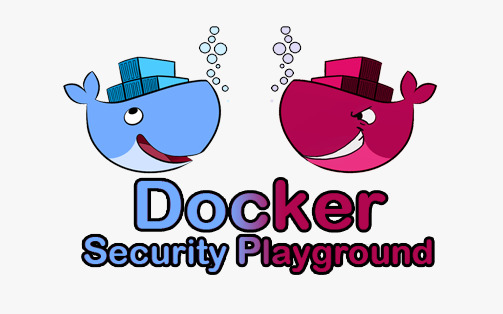Docker Security Playground is an application that allows you to:
- Create network and network security scenarios, in order to understand network protocols,
rules, and security issues by installing DSP in your PC. - Learn penetration testing techniques by simulating vulnerability labs scenarios
- Manage a set of docker-compose project . Main goal of DSP is to learn in penetration testing and network security, but its flexibility allows you the creation, graphic editing and managment run / stop of all your docker-compose labs. For more information look at the Labs Managment page.
- Nodejs (v 7 or later)
- git
- docker
- docker-compose
- compiler tools (g++, c, c++)
Install prerequisites and run:
npm install
When you update the application it is important to update the npm packages (The application uses mydockerjs, a npm docker API that I am developing during DSP development: https://www.npmjs.com/package/mydockerjs)
npm run update
Run
npm start
To start the application. This will launch a server listening on 8080 (or another if you set have setted ENV variable in index.js file) port of your localhost.
Go to you favourite browser and digit localhost:8080. You'll be redirected on installation page, set parameters and click install.
For documentation about DSP usage go to Wiki page:
- Main Page: http://gitlab.comics.unina.it/NS-Thesis/DockerSecurityPlayground_1/wikis/home
- User Guidehttp://gitlab.comics.unina.it/NS-Thesis/DockerSecurityPlayground_1/wikis/user_guide
- Docker Wrapper Image: http://gitlab.comics.unina.it/NS-Thesis/DockerSecurityPlayground_1/wikis/dsp_wrapper_image
It is a little outdated, I will update it as possible !
DSP implements a label convention called DockerWrapperImage that allows you to create images that expose action to execute when a lab is running. Look at the doc
- How can I share my labs with the world ?
During the installation you can create a local environment that has not link with git, or you can associate a personal repository the the application. This is very useful if you want to share your work with other people.
DSP Repository must have several requirements, so I have created a base DSP Repo Template that you can use to create your personal repository.
So, the easiest way to share labs is the following:
- Fork the DSP_Repo project: https://github.com/giper45/DSP_Repo.git
- During the installation set github directory param to your forked repository.
- Now create your labs and share it!
It is important that all images that you use should be available to other users, so:
- You can publish on docker hub so other users can pull your images in order to use your labs.
- You can provide dockerfiles inside the .docker-images directory, so users can use build.sh to build your images and use your repo.
If you need a "private way" to share labs you should share the repository in other ways, at current time there is no support to share private repositories.
In DSP you can manage multiple user repositories (Repositories tab)
MacOS ECONNRESET error:
events.js:183
throw er; // Unhandled 'error' event
^
Error: read ECONNRESET
at _errnoException (util.js:992:11)
at TCP.onread (net.js:618:25)
On Mac it seems that there is some problem with some node package, so in order to solve this run:
MacBook-Pro:DockerSecurityPlayground gaetanoperrone$ npm install [email protected] --save-dev --save-exact
Other info here: http://gitlab.comics.unina.it/NS-Thesis/DockerSecurityPlayground_1/wikis/docker-operation-errors
- Fork it!
- Create your feature branch:
git checkout -b my-new-feature - Commit your changes:
git commit -am 'Add some feature' - Push to the branch:
git push origin my-new-feature - Submit a pull request, we'll check
Use the Issues in order to ask everything you want!.
- Technical support: Gaetano Perrone, Francesco Caturano
- Documentation support Gaetano Perrone, Francesco Caturano
- Application design: Gaetano Perrone, Simon Pietro Romano
- Application development: Gaetano Perrone, Francesco Caturano
- Docker wrapper image development: Gaetano Perrone, Francesco Caturano
Thanks to Giuseppe Criscuolo for the logo design
Got to CHANGELOG.md to see al the version changes.
This project is under the MIT license
